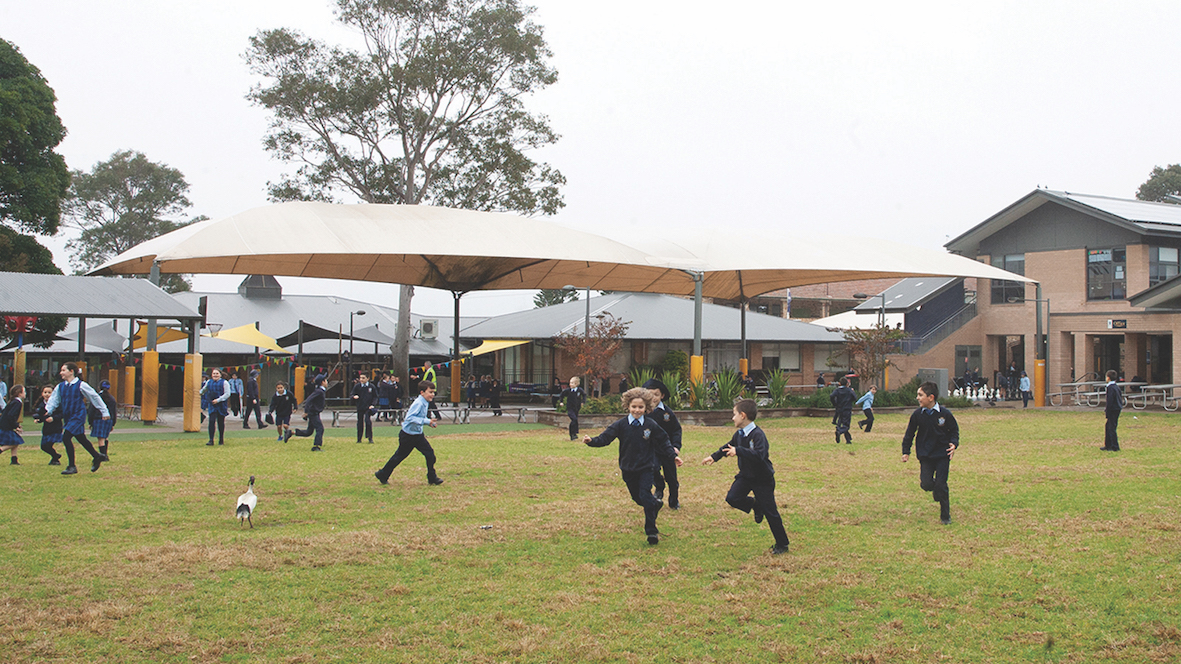“Sport provides a great deal to people in their lives, it gives them purpose.”
– Kim Moroney
During the formative years at school, activities are broken into designated time slots. Lesson time. Play time. Sport time. Learning and passion are segregated by conventional teaching styles. But what if there was something that could encompass all of these practices? That could combine fun, curiosity, and growth. An ability that is second-nature to both children and adults. It is a simple, yet complex notion that everyone has the right to play.
The United Nations Convention on the Rights of the Child recognizes the importance of play in a child’s life and declares that every child has the right to engage in play and recreational activities appropriate to their age.
But what does this look like first hand? Sydney Catholic Schools (SCS) Early Years Specialist of Pre to 4, Kim Moroney, defines ‘true play’ as self-chosen and self-directed. She believes “play is in our lives forever.”
“It’s a natural right to play. Even as babies, they’re holding up their hand, looking and discovering, it’s a form of play. When they begin walking and they fall down and get back up again, then fall, it’s a style of play” Kim says.
The principle of ‘play’ is foundational to a child’s emotional, social, and physical development. Learning through action and shared experience creates a lasting imprint of cognitive thinking and emotional intelligence.
Think back to your childhood, when you built a very questionable block tower with your best friend, but to the pair of you it was a skyscraper. This activity alone requires literacy skills; to communicate between you about the logistics of the build. It requires problem solving and critical thinking; to ensure the structure is sturdy and is engineered well. Most of all it requires creativity to imagine the glorious height of the tower as it soars past the clouds. If a child can learn and cultivate all these qualities from a dodgy, barely stable lego concoction, imagine what other styles and forms of play have to offer.
Kim warns of the threat schoolification poses on a child’s right to play.
“I hear stories of children that are 4 years old, instead of playing at preschool they’re having lessons. Whereas, we know they should be playing and naturally literacy and numeracy comes as a part of that” Kim explains.
“Explicit teaching is very important but so is inquiry, discovery, and play. The intention is to move the children along a continuum of growth, and teachers sometimes think they have to do that by sitting down, sitting still.”
Kim speaks of how we see “the image of a child” and how this can affect their self-expression and development.
“If we view children to be capable, competent, and creative, if we see that they’re fully human and citizens of the world, it helps to think ‘ok well what are their rights?’”
“If you believe children have their own interests and passions, you’re going to give them opportunities to express those passions,” she says.
For some, when thinking of passion and play, sport springs to the forefront of the mind. Not only does it encapsulate the benefits of learning by doing, but sport can round out a child’s maturation by exercising teamwork, camaraderie, and dealing with adversity.
“For some, sport is incredibly creative and exciting, and involves problem solving. I truly believe sport is definitely playful in many situations. And I believe for a lot of people sport is important for their physical and mental wellbeing” Kim says.
There are two principles of “true play.” It must be self-chosen, and self-directed. To ensure that SCS students are able to choose their own physical outlet, the SCS Sports Program offers a range of mainstream and niche sports to accommodate as many childrens’ interests as possible and establish a cultivation of passions.
In terms of the second principle, Kim explains how a child’s imaginary game and a sporting event are very similar.
“During true play, children often establish a set of rules for the game. If we are playing shops, I’m the cashier and you’re the customer. There can be rules in play. They’re usually established by the participants and I think that’s how sport would have started off.”
Some people choose not to participate in sport. But when it’s Friday night footy, and you’re shouting at the TV because one of the players went left when you believe he clearly should have run right, this is another example of play.
Kim identifies that “sport can also be extremely entertaining.” Some people don’t physically engage in the activity, however can still be a member of the sporting community through spectating, officiating, or coaching.
“I can’t surf, but I love watching surfing! I choose to watch it, I choose to follow it, and find it extremely playful to see. It’s kind of an audience member’s style of play” Kim says.
It is vital that children and adults value the importance of play, not just as a leisure activity, but as a form of teaching and discovering. A child’s right to play is heavily impacted by their environment and their interactions with others, therefore it is imperative to keep in mind that play is not just a privilege; it is a fundamental right that must be respected and protected.

